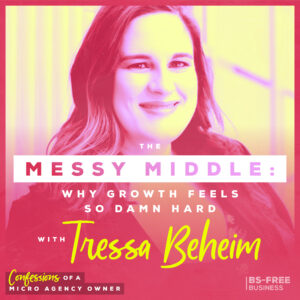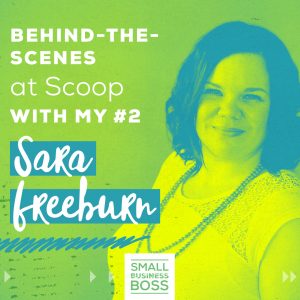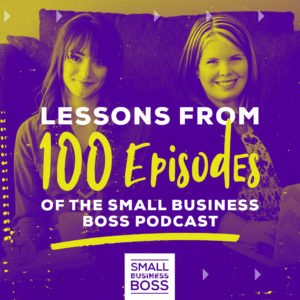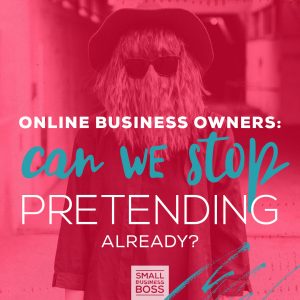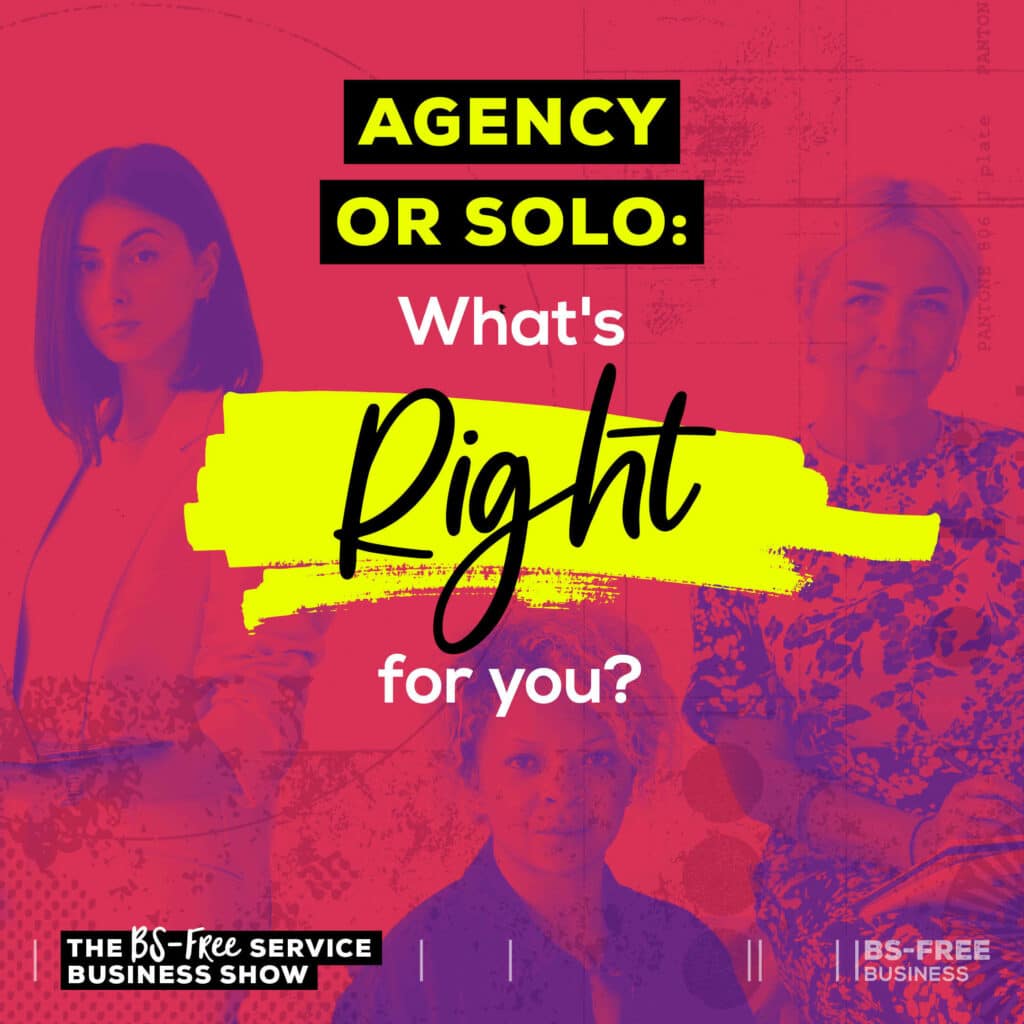
Search the site:
Agency or Solo: What’s Right for You?
If you want to grow your service business, you may wonder what your options really are. Do you need to hire? Do you need a team? What’s really right for you?
According to conventional business wisdom, there are only two paths to follow when growing a service business. (Don’t get me started on how this lacks nuance and is genuinely some oversimplified BS.)
Path #1: You need to stop doing services and “trading time for dollars” and start creating digital products, courses, or group programs.
Path #2: You build your team and run an agency.
I often see people who want to continue doing services, so they think they have to start an agency. Or people who become agency owners by accident.
In reality, building a microagency should be a strategic choice, not something you choose to do lightly. The truth is that it’s more complex than just hiring some people and watching the cash roll in.
We’re inundated with big promises of what an agency can do for us and how fast we can do it. These promises are courtesy of people deeply entrenched in the online business industrial complex and often make similar claims to what we see about selling courses and group programs.
They have BS blueprints and systems based on their specific and unique experience as an agency owner. It’s the classic 10% edge we see in online business where there’s a belief you just need to be slightly ahead of your clients.
As someone who mentors agency owners, I absolutely rely on my experience as an agency owner. But that experience goes beyond a year or two of owning an agency or working with online businesses. I’ve spent my entire career working either as an agency employee, freelancer, or agency owner, which gives me a depth of experience I simply don’t see amid these big, bold, brash promises about what an agency can do for you.
This is why I want to explore what to consider when deciding whether you should stay solo or run a microagency.
What to Consider: Deciding to Stay Solo or Run an Agency
First, let’s start with my definitions so we’re all on the same page. Here in the BS-Free Business universe, a solopreneur is a business owner who runs independently. They may have support, such as a VA or another freelancer, but they play a small, supporting role. Or they may collaborate with other solo business owners from time to time.
An agency, or in my preferred terminology, a microagency (as I specialize in), focuses on a leveraged model, where you plus a team of employees and/or contractors deliver client work. With this model, there’s a focus on having structure around operations, client service, and so on.
While it’s not uncommon for solo business owners to grow into agency owners, there’s a marked difference in how business is done and delivered on an ongoing basis.
If you look at the key areas of your business, each one is quite different.
Marketing and Sales
Many solo business owners run very successful businesses with minimal marketing as they have limited capacity. To build an agency, you need to be able to bring in more clients and manage more complex projects to cover your team and infrastructure costs and turn a profit.
With that in mind, many agency owners don’t consider that the marketing needs to evolve and may require more thought leadership or proactive marketing. One of the biggest mistakes I made as an agency owner in the early days was thinking that my lead sources would be sufficient to fill my pipeline. Going from a team of one to an agency with four full-time employees was a wake-up call regarding the lead gen and marketing level needed.
None of that is to say you can’t have a thriving agency, but there’s a distinct uplevel that eventually has to happen with marketing when growing an agency.
Along with the marketing comes the potential for more sales activity, which can be time-consuming. Many of the most successful agency owners I know actually love the marketing and sales part of the role, which is ideal as they can focus on that while their team does the client work on a day-to-day basis.
The final thing I want to touch on related to sales is that your pricing needs to be higher with an agency than when you’re a solopreneur. If you’re in an industry where you constantly resist your pricing, you may need to look for ways to serve clients who will pay the pricing you need to charge to cover the hard costs of agency operations.
Client Service and Deliverables
For many solo business owners, one of the appeals of moving to the agency model is that they won’t have to handle all the client service and deliverables. While I get this, I want to be clear that having a team doesn’t mean you don’t do client work anymore. You just may do less of it over time, and you have the support of your team in getting things out the door.
Over the past seven years, I’ve done less and less client work, but make no mistake, I still do client work most weeks. I’m involved with our clients and deliverables. Getting to this point has been a process as the team has changed and shifted over time.
I’ll talk more about the leadership and team aspects of running an agency in a moment, but I don’t want anyone jumping into this business model thinking they’ll be not doing any client work and can sit on the beach three months from now.
Ultimately, your name is on the door, and your company’s reputation is at stake, so you have a vested interest in ensuring clients are happy and that your team is delivering as expected.
In all honesty, if you’re someone who currently struggles with keeping clients happy, client expectations, and boundaries, moving to a team-based model won’t fix it. That’s the kind of thing that should be handled before you start bringing other people into the mix or you have the potential to set yourself up for chaos.
Leadership
The conversation about building an agency frequently skips over the leadership part of the equation. It’s all about the benefits, but it fails to address that you need to be ready to lead when you have an agency, whether a team of three or 30.
Leadership skills can be learned and developed, but staying solo may be your best choice if this is less appealing.
For me, leadership was something I resisted after leading a team when I worked in an agency. With a small child and a new business as a freelancer, there was zero appeal in having a team. I didn’t want to have to spend my time on feedback, coaching and more. I only decided to move towards having an agency when I had an 11-year-old and had been in business for ten years.
Part of this comes down to how you want to spend your time, and one option may be more appealing for you right now. An agency is a viable choice if you want to focus on leading and business development. Conversely, that may differ from how you want to spend your time.
Remember, saying yes to one option doesn’t mean it’s a no to the other forever.
The Biggest Benefits of Each Model
This episode has been full of “real” talk, so I want to balance that with a look at the benefits of staying solo or building an agency. The most significant advantage is that you don’t have to stop being a service provider.
Despite what celebrity entrepreneurs think, countless people like the service business model, and we’ve got multiple ways to deliver those services in a way that works for us.
For business owners who want to stay solo, the biggest benefits are:
- Simplicity as you only have to worry about yourself.
- Ability to be agile in a changing market.
- Low overhead costs and higher profit margins.
- You have complete control over everything.
And for those of you with a microagency or who want to shift into that model, the biggest benefits are:
- Ability to focus on the aspects of the business you most enjoy.
- Being responsible for only some client work and client management.
- Mentoring and coaching your team and building lasting relationships.
- Expanding your business and leadership skills in new ways.
My goal is to help you run a service business that best works for you.
The following two episodes focus on things you need to know for all the agency owners. Next week, we’ll be talking about the myths of the microagency.


I’m Maggie Patterson (she/her), and services businesses are my business.
I have 20+ years of experience with client services, am a consultant for agency owners, creatives, and consultants, and vocal advocate for humane business practices rooted in empathy, respect, and trust.
Read or Listen to the Latest
For Solo Business Owners

Growing a solo service business is tough.
It’s even harder when you’re bombarded with BS advice that steers you away from your values and why you started your business in the first place.
This is the podcast for solo creatives and consultants who want to remain as a team of one and have zero interest in the hustle and grind of typical business teachings.
Subscribe now and never miss an episode.
For Micro Agency Owners
Most podcasts for agency owners obsess over revenue growth as the ultimate success metric.

But here’s the truth: not everyone wants to make millions. Your goal might be to build a sustainable business that lets you have a life and doesn’t run you into the ground.
Join me as I spill my shameless confessions and share everything I’ve learned about building a micro agency that skips the BS of tired and typical agency teachings.
Follow Now on All Major Podcast Platforms
